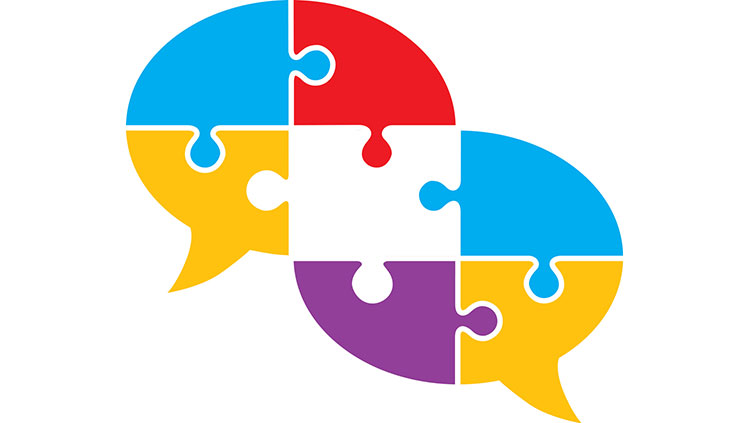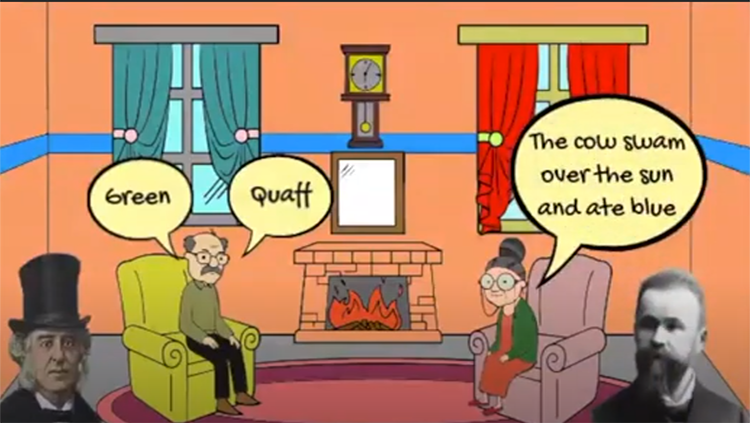Unspoken, Unheard, Unexpressed
- Published27 Oct 2023
- Source BrainFacts/SfN
Grasping for a word every now and again is a common enough experience. But being truly speechless or unable to say what you want to is a symptom of aphasia. Caused by strokes or other damage to the brain, aphasia arises when that damage affects parts of the brain responsible for language comprehension and production. Explore the three different types of aphasia, how they affect patients, and the role of speech and language therapy in treating them.
This is a video from the 2023 Brain Awareness Video Contest.
Created by Madhalasa Iyer.
CONTENT PROVIDED BY
BrainFacts/SfN
Transcript
Pretend you're looking at a view: one of the most beautiful aspects in nature, a parent's love to their child, or a jaw-dropping scene at a movie theater. You may be at a loss of words coming up with garbled language that no one may understand. But hey! That makes sense looking at some things or some people might leave you speechless: like him....or him....or him.
But what if you were truly speechless or couldn't speak what you wanted to? This symptom is part of a real-life disorder called Aphasia. So what exactly is aphasia? Aphasia is a disease that causes damage to portions of the brain that are responsible for language comprehension and production.
There are three main types of aphasias. The first type of aphasia that we're going to discuss is Wernicke's aphasia. Wernicke's aphasia causes you to speak in a mix of words called a 'word salad' that others won't be able to understand. This effects Broadmann's area 22 in the Wernicke's area of the brain that is involved in language comprehension. This is located in the temporal lobe. The following video is an example of Wernicke's aphasia on a real patient:
How are you? I'm happy. Are you pretty? you look good. What are you doing today? We stayed with the water over here at the moment and talked with the people for them over there they're diving for them at the moment they'll save in the moment they held water very soon for him with luck for him. So we're on a cruise and we're about to....We will start right here and they'll save their hands right there for them. What were we just doing with the iPad? Uh right at the moment they don't show a darn thing. The iPad that we were doing, like here? I'd like my change for me and change hands for me it would happen I would talk with Donna sometimes we're out with them other people are working with them with them. I'm very happy with them. Good! This girl was fairly good.
That was Mr. Byron from Tactus Therapy giving us a glimpse into Wernicke's aphasia. In contrast, Broca's aphasia gives an individual very limited language use. An individual with Broca's might only be able to say single words or short sentences. This affects Broadmann's area 44 and 45. The way to remember is Broca's cause means bro-ken language. This Aphasia affecting the frontal lobe is different because these individuals have awareness but they lack the ability to form complete sentences. The following video shows an example of Broca's aphasia:
Can you tell us your name? I'm Mike Caputo. And Mike when was your stroke? I was um seven years ago. Okay, and. And what did you used to do? Um well um worked um on a desk um seven seven sales, sales and worldwide, and very good, yeah. Okay and who are you looking at over there? My wife. Okay, and why is she helping you to talk? Um she's a speech um. So you have trouble with your speech? Yeah yeah. And what's that called? Aphasia.
The lesser-known form of a aphasia is called Anomic Aphasia where individuals cannot find the right words or nouns to describe their sentences. This leads them to express frustration and have a language filled with these remarks. For example, look at the following three images on the screen. Can you name them? A person with anomic aphasia would be unable to produce these names. Yet to diagnose these forms of aphasia, physicians use either a CT scan or an MRI scan. These imaging techniques help find the extent of the damage in the brain and also identify where exactly this damage has occurred.
These scans together can find out whether it's a lesion, a tumor, a stroke, or any other specific infractions on that part of the brain. These scans allow for specialized diagnosis and treatment, if necessary. But there is however a lot of good news to this issue. A speech and language therapist can help treat Aphasia leading to improvement in the spoken words. Additionally, further research on this topic can lead to more exposure so no one is ever unspoken, unheard, or unexpressed.
[Music]

















